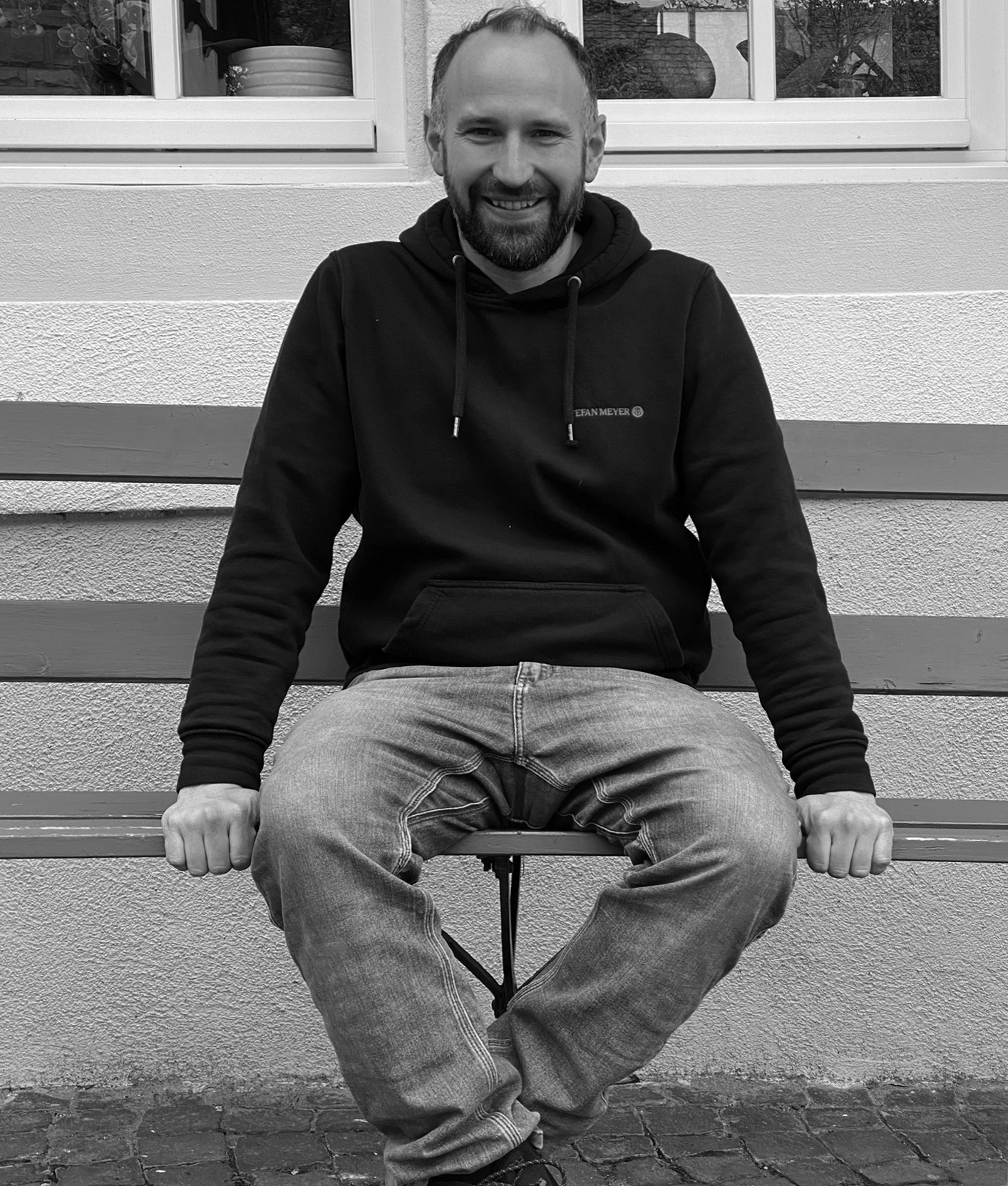
Rhodt is a small, traditional village (with a population of around 1,000) located forty kilometres north of the French border. In fact, the vineyards here could be considered a natural extension of the land that divides the Rhine from the Vosges Mountains. The only real difference (apart from the selection of grape varieties exploited) is whilst the vineyards of Alsace are at an average of 400 metres, here they are at a much lower elevation of around 220 metres.
Historically, going back to the early 1900s, Rhodt was colloquially known as ‘Traminerdorf’, since the most widely planted variety at that time was Gewürztraminer.
In the summer months, the village is busy with tourists who come to admire the unspoilt Teutonic architecture and to visit the imposing Summer Palace, once occupied by Bavarian kings.
The village hosts 13 different producers. Each work vineyards on the gentle slopes of red sandstone and limestone, below the forest yet elevated above the Rhineland plain. The Rhine itself is some 20km to the east. Like in Alsace, the hills and wooded slopes help to shelter the vineyards from westerly weather fronts and help temper the climate. Spring frost is never an issue here and in the summer months the heat in the afternoons is only ever moderate. Despite this, it is usual for the growers to harvest their Pinot Noir and Chardonnay a good two weeks in advance of their Burgundian counterparts.
WEINGUT STEFAN MEYER
Stefan is one of the 13 producers whose vineyards are within the commune. It was his great-grandfather who first established himself in the village. He was originally a winegrower from the Hessen but fell in love with a girl from Rhodt, relocating just after the war. At that time, the family vineyard followed the fashion of exploiting the more aromatic grapes. It was Stefan’s father who made the switch to ‘Pinot’ varieties.
Stefan has been making wine at the family cellar (built in 1954) for the last 12 years. Prior to that, he had worked stages in Burgenland, the Beaujolais and at Kendal-Jackson in Sonoma.
Having initially inherited 10 hectares of family vineyards (all of which are within 3km of the cellar), Stefan started the conversion to organic farming in the late teens, with the first wines being fully certified from the 2021 vintage. There are now 17ha in production with the promise, from the 2023 harvest, of a further 13ha which he has just taken over from a retiring winegrower in the village of Godramstein, some 7 kilometres away. The previous incumbent had remained a traditional producer, selling mostly semi-sweet wines to an ageing local clientele. It is Stefan’s objective to convert some of this land to Pinot Noir and Chardonnay, whilst retaining the parcels of older vine Riesling.
THE WINES
RIESLING ‘EIN LITRE’ TROCKEN QbA
Dry (6.5g/l residual sugar) Riesling in a handy one-litre bottle.
RIESLING BUNTSANDSTEIN TROCKEN QbA
From a single site planted on red limestone, located between Rhodt and the Summer Palace. Fermented in stainless steel, the wine has less than one gram per litre of residual sugar.
CHARDONNAY-WEISSER BURGUNDER LÖSS-LEHM TROCKEN QbA
A 60/40% blend, fermented and aged partly in low-toast 3500 litre German oak foudres, with the balance in stainless steel. The two varieties are harvested and vinified apart, with blending taking place four weeks before bottling.
GRAUER BURGUNDER LÖSS-LEHM TROCKEN QbA
Naturally fermented, with around 20% committed to larger wood. The fermentation stops naturally, leaving the wine with around 5g/l residual sugar.
CHARDONNAY ‘AUS RHODT’ TROCKEN
From Burgundian clones. Fermented and aged in a combination of 500 litre tonneau and small French barriques.
FRÜHBURGUNDER LÖSS-LEHM TROCKEN QbA
Known as Pinot Noir Précoce in France, this is an early ripening form or mutation of Pinot Noir and has traditionally been widely grown on both sides of the German Rhine. It looks and smells like Pinot Noir… Here, the wine is aged in older barrels for an extended period to help soften out the tannins.
PINOT NOIR ‘AUS RHODT’ TROCKEN
French Pinot Noir clones aged for between 12 and 16 months in older French and German barriques, of which 20% are now.
PINOT NOIR RHODTER SCHWARZER LETTEN QbA
These 40 year old Burgundian clone Pinot Noir vines are from a single lower altitude (and therefore warmer) site on the road to Edenkoben. The wine is aged in between 30 and 50% new French oak.
Website : meyer-rhodt.de/en
| Frühburgunder LÖSS-LEHM trocken | pack shot | fiche 2020 |
| Pinot Noir Edenkobener Schwarzer Letten trocken | pack shot | fiche 2020 |
| Pinot Noir aus Rhodt trocken | pack shot | fiche 2020 |
| Chardonnay AUS RHODT trocken | pack shot | fiche 2021 |
| 1 LITER Riesling trocken | pack shot | fiche 2022 |
| Riesling BUNTSANDSTEIN trocken | pack shot | fiche 2022 |
| Chardonnay & Weißer Burgunder LÖSS trocken | pack shot | fiche 2022 |
| Grauer Burgunder LÖSS-LEHM trocken | pack shot | fiche 2022 |